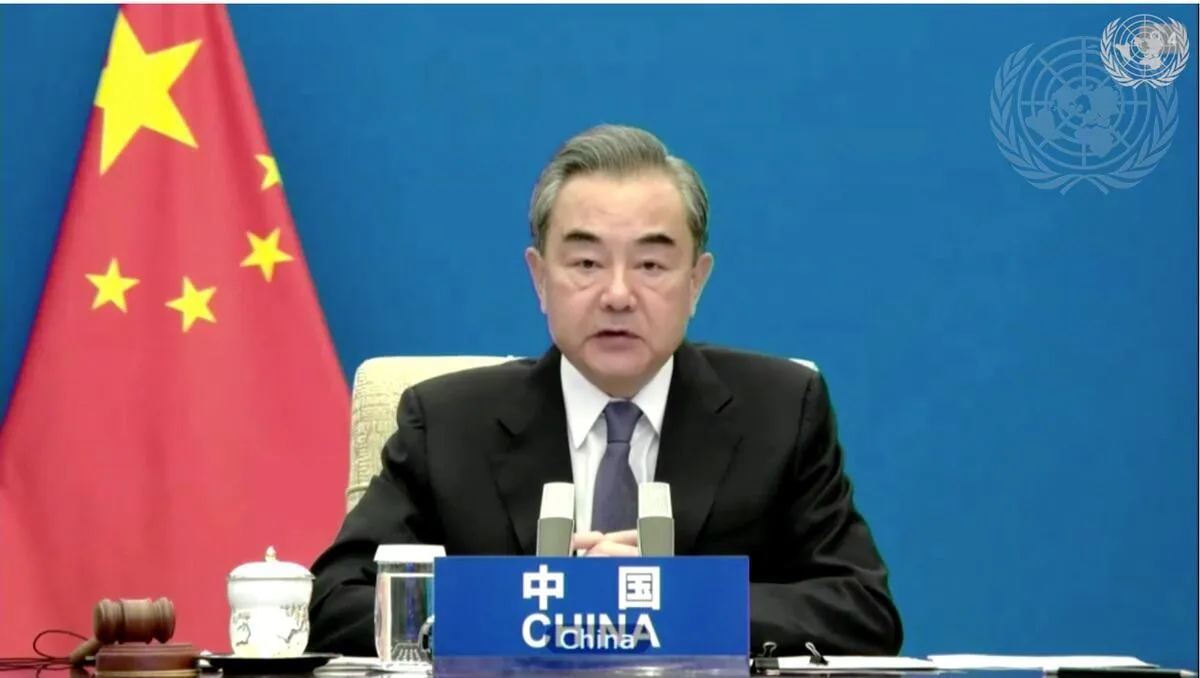Without intervention, the Palestinian-Israeli situation is a cockpit for World War III. The strategic situation of Southwest Asia is one of incredible danger, now escalating in a way that the spill-over can ignite a global conflagration.
Over the weekend, Chinese Foreign Minister Wang Yi, on a call with U.S. Secretary of State Antony Blinken, stressed that the major nations must now support an international conference on the crisis situation. The United States has been informed.
This peace conference proposal goes back to last June when Chinese President Xi Jinping presented the need for an international peace conference to be held on the Israel-Palestine conflict. That proposal is now back on the agenda, with life-and-death urgency.
The proposal was raised by China with Brazil last week. Chinese Foreign Ministry spokesman Wang Wenbin said on Oct. 13, that Wang Yi is coordinating on the peace conference proposal with officials from Brazil. Note that Brazil is the rotating chair of the UN Security Council this month. Wang conferred Oct. 12 with Brazilian President Lula da Silva’s Chief Foreign Policy Advisor Celso Amorim, about the Palestinian-Israeli conflict. Wang told Amorim, “China calls for an international peace conference with greater authority and impact as soon as possible to galvanize a more broad-based international consensus with the two-state solution serving as its basis, and to formulate a timetable and roadmap to that end.” Wang Yi added that the UN has both the responsibility and an obligation “to pay its due role on the Palestinian question.”
The on-the-ground situation for the 2.3 million people of the Gaza Strip amounts to conditions knowably leading to mass death. An estimated 1 million people are displaced within Gaza; among those are more than 500,000 who tried to leave the north for the south. The World Health Organization has issued a statement calling Israel’s order for people to evacuate from the north to the south, a “death sentence.” This affected 22 hospitals, many of whose 2,000 patients were too ill to be moved. There is no water nor sanitation for hundreds of thousands of people. Electricity is mostly down. Food scarcity is acute.
On the military side, the IDF hit Gaza at 250 sites on Sunday, Oct. 15, and continued strikes today, including in southern Gaza, where northern Gaza residents were told by Israel to move. Hamas rockets continue into Israel intermittently. Israel has massed forces on two fronts—the Gaza border and the border with Lebanon, facing Hezbollah. Israel has evacuated 28 villages along its northern border.
The USS Gerald R. Ford aircraft carrier battle group remains in the Eastern Mediterranean. On Oct. 13, the USS Dwight Eisenhower departed from Port of Norfolk, Virginia, to go to the Mediterranean, to bring additional forces to what U.S. military declare as “deterrence.” Frigates from Italy and Britain have been ordered to join the American forces. The dramatic aspect of this massed force, as noted by many military experts, is that just a wing of drones could cause major damage to the fleet, before the planes could even take off.
Veteran U.S. intelligence analyst Ray McGovern sent out a stinging X message Sunday on the maritime madness: “Into the valley of death sailed the 10,000 aboard aircraft carriers Ford and Eisenhower—sitting ducks for swarming drones and other weaponry not dreamed of by those who made short work of the Charge of the Light Brigade. Perhaps Blinken/Nuland/Austin want that? Or are they just dumb?”
Secretary Blinken was back in Israel today, after a swing around six Arab nations since his first emergency visit to Israel last week. But with not only no solution, but furtherance of the crisis. Likewise EU Commission President Ursula von der Leyen made a visit. Pres. Biden will go to Israel Wednesday, according to a breaking report tonight. German President Olaf Scholz said today he may visit soon. Their litany: “Israel has the responsibility and obligation to do whatever it wants to protect itself.”
In contrast, the role of the International Peace Coalition (IPC), only five months in operation, is critical to galvanize decisive action internationally to intervene for security in all respects, for all nations. On Friday, Oct. 20, will be the second open (online) IPC meeting of world figures and network leaders for peace, after the first such dialogue last Friday.
There will be a world-important platform for thinking, proposals and collaboration on the emergency in Southwest Asia at the Belt and Road Initiative 10th anniversary forum in China Oct. 17-18. Already today, many heads of state arrived and important bilateral meetings took place, including that of Russian Foreign Minister Sergey Lavrov and Foreign Minister Wang Yi. Among the thousands of people attending, delegations will represent 140 countries, and 200 of the participants will be ministerial level or higher. President Xi Jinping is expected to welcome the attendees at the beginning of the sessions, and also give a major address Wednesday at the plenary.
There have been mass protests around the world this past weekend, calling for humanitarian emergency measures in Palestine, and talks towards peace in Southwest Asia. Thousands were out in cities around the world, from Los Angeles to Copenhagen. Today in Washington, D.C., people turned out at the gates of the White House to demand a stop to the obliteration of Gaza, and measures for justice and peace.
Schiller Institute founder, and co-initiator of the IPC, Helga Zepp-LaRouche conferred today with collaborators, on the focus of immediate demands. There must be an immediate end to the violence. There must be the process of a negotiated solution, which needs to take place in the context of a peace conference. To succeed, the Global Majority must play a leading role in this process. All of this is urgent, and can be understood as the first step towards a world-scale security and development architecture.






